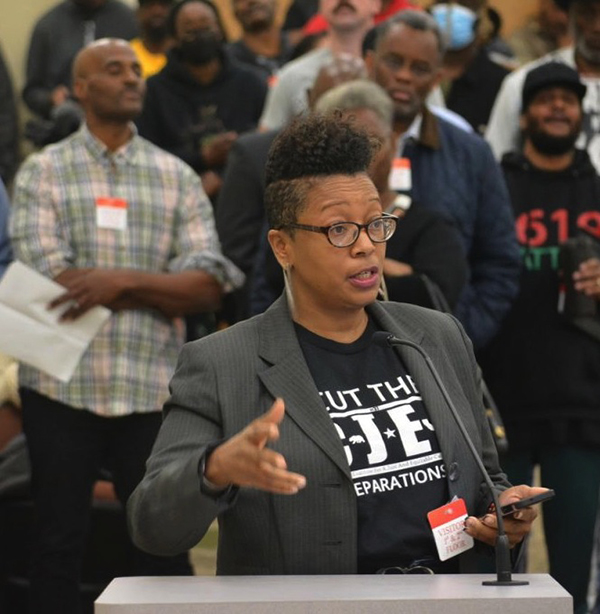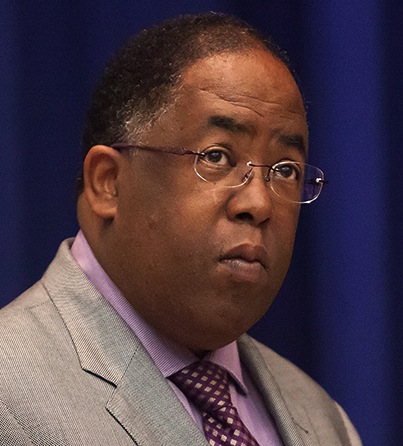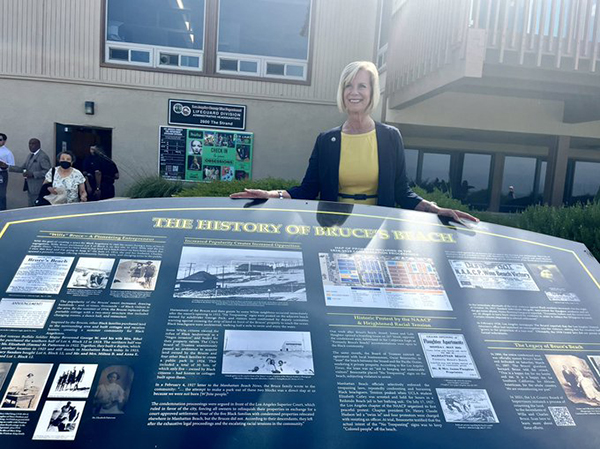By Shirley Hawkins
Contributing Writer
Shining a spotlight on special needs children born with autism is a mission that attorney Areva Martin, founder and president of the Special Needs Network, has advocated for more than 17 years. Her concern grew out of the struggles her son Marty was having after being diagnosed with autism at the age of 2.
When Martin became aware of the enormous challenges faced by families affected by developmental disabilities in underserved communities, she worked to create the Special Needs Network, a parent-centered nonprofit organization.
Each year, her organization continues to assist thousands of families by providing resources, support, empowerment and unconditional love.
Martin held the organization’s 16th annual Tools for Transformation Conference on April 30 at Los Angeles Trade Technical College. The theme of the conference was “Resilience, Resistance and Rebirth–Building Powerful Voices, Families and Communities.”
The conference also commemorated the 30th anniversary of the 1992 civil unrest, which captured headlines after four Los Angeles police officers were acquitted of charges connected with the beating of Black motorist Rodney King.
Special guests at the Transformation Conference included keynote speaker and renowned author Michael Eric Dyson; state Sen. Steven Bradford and state Assemblyman Isaac Bryan. Bradford and Bryan have been staunch supporters of the Special Needs Network and both have lobbied to attract funding and recognition to the organization for its ongoing work.
Touching on the conference’s theme of resilience, Martin reflected, “After we watched the brutal beating of Rodney King by those four white officers … , we saw this community erupt and say ‘enough.’ This is the weekend we commemorate the uprising.
“The other part of our theme is to resist. As we reflect this weekend on systemic racism and the lack of accountability in the justice system, we must continue to resist those forces that seek to preserve the status quo as we persist in challenging systems of injustice and inequality. We see that so much in the disability community, and particularly in Black and brown communities.
“We are here as a testament to our resistance to those that don’t want to see our young people, our children and our families move forward,” she said. “We will continue to stand and resist and to be resilient and strong because we know when we surround our kids with resources, love and support that there is nothing that our kids can’t accomplish. So let’s keep standing up for our kids and keep supporting them and let’s keep saying that kids with disabilities throughout this county and throughout this state matter.”
Bradford, chairman of the California Legislative Black Caucus, has been a member of the Special Needs Network for more than a decade.
“I know of a special needs employee who has been in the [state] Capitol for 12 years, as long as I’ve been there,” Bradford said. “What fills my heart every day is when I walk into that capital and see this employee who greets me every morning with a smile and a positive attitude.”
Bradford said he will continue to be an advocate and supporter of the special needs community.
“We want to make sure that our special needs children are seen and are appreciated,” he said.
Bryan said, “There are a lot of people in our community that go unseen. I have two special needs siblings.
“My little brother Evan was born severely premature on the spectrum with cerebral palsy. He wasn’t supposed to live past six months. His head was not fully shaped yet.
“My mother sat with him for a month in the hospital. Finally she said, ‘What do I have to do to take him home?’ The doctor said, ‘We’re not sure we can make that happen but we’re going to try.’ Mom put oxygen tanks in the house and took Evan home. Evan is 20 years old now.”
As the audience applauded, Martin noted, “We call that mama a special needs mama and we would love to have her join the Special Needs Network.”
“Resilience is a personal and a community attribute,” Bryan added. “There is nothing more resilient than parents who care for special needs children and there is nothing more special than special needs children themselves. This community is near and dear to my heart because there is nothing more resilient than special needs children. Whenever you need me, call on me,” he said.
Dyson took to the podium and said that not only are special needs children on the spectrum, but Black and brown people as well, citing institutional racism as the touchstone that exposes the similarities.
“Autism has been socially constructed as a disease and as a phenomenon that has deprived human beings of their rightful standing citizenship and community rights,” he said. “Society projects certain characteristics for those who are on the spectrum.
“Black babies have a better chance of survival if they are treated by a Black doctor. That’s when you notice that little baby could be you. Could be your mama’s kids. That baby could be your relatives or somebody who looks like you. You have an intimate acquaintance with their vulnerability because it reflects your own,” Dyson added.
“The scientific community is triggered by existential and emotional needs that are not always made explicit. So we know that being on the spectrum means that from the get go you are already behind the eight ball, under resourced, under acknowledged, underfunded.
“We are all on the spectrum,” he continued. “Being on the spectrum means that you are seen as socially diseased, too,” he said, citing the continued plague of police brutality in Black and brown communities across the country and critical race theory that has caused heated discussion and is being banned from the schools.
“Our right wing brothers and sisters are trying to exercise control over schools of which they have no knowledge and who will miseducate us,” Dyson said. “We need to have greater citizen control over the policing departments that govern us and that sometimes attack us and often don’t appreciate who we are as citizens. So those things are extremely important.
“Dyson is saying we are all on the spectrum,” Martin said. “He is showing people that being on the spectrum is just recognizing that as long as Black and brown people are considered ‘others’ that we all have an obligation to be empathetic to love and support, not just people with disabilities, but all marginalized people.
“If you are a Black or brown person in this country, you are a marginalized person and he did such a brilliant job of bringing all of that together.”
Shirley Hawkins is a freelance reporter for Wave Newspapers. She can be reached at metropressnews@gmail.com.












